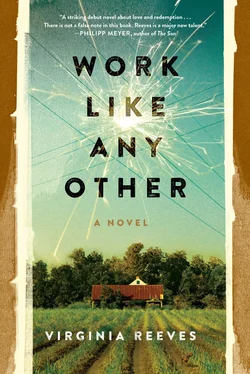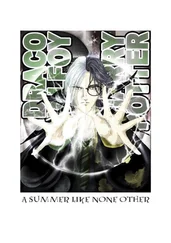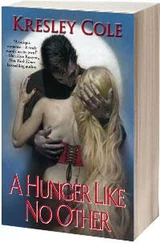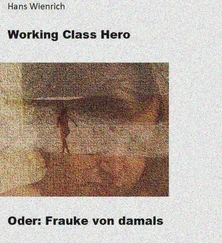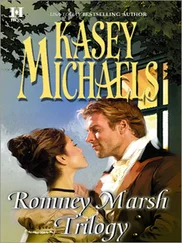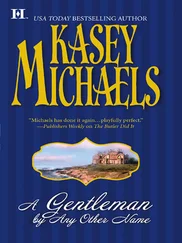Virginia Reeves
Work Like Any Other
For my grandmother, Therese Reeves
Alabama does not mean “Here we rest.” It never did.
— Mrs. L. B. Bush, from “A Decade of Progress in Alabama,” 1924
Kilby Prison marks the impending transfer of the State of Alabama from the rear ranks of prison management to the front ranks. Alabama is following the example of the State of New York and the State of Virginia in establishing a central distributing prison to which prisoners will be sent immediately upon their conviction, and where they will receive: first, a thorough study of their history; second, a most thorough examination, mental and physical, by trained experts; third, a thorough course of treatment to remove any remedial defects; fourth, assignment to that prison and employment for which the convict is best adapted; and fifth, a systematic course of reformatory treatment and training, in order that the prisoner may be restored to society, if possible, a self-respecting, upright, useful and productive citizen.
— Hastings H. Hart, from Social Progress of Alabama, 1922
The electrical transformers that would one day kill George Haskin sat high on a pole about ten yards off the northeast corner of the farm where Roscoe T Martin lived with his family. There were three transformers in all, and they stepped down electricity that belonged to Alabama Power, stepped it down to run on new lines along a farm fence, then on through the woods, then straight to the farmhouse and the barn. Roscoe built the transformers himself. He built the lines. He did not have permission.
The idea for running in power arrived nearly a year before the power itself. He should’ve been eating dinner with his family, but he’d hurt his son and made his wife cry, so he was walking the cursed land his wife had forced him to. He took the path through the north corn to bring him close to the new power lines along Old Hissup Road. The corn was to his hips, still young, and the giant grasses brushed his fingers, a sickly feeling that set him shaking out his hands as if to unseat an insect. Of all the crops on his wife’s land, corn was Roscoe’s least favorite, something obscene in its size and growth, in its stalks and blades and seeds — everything too big.
His wife and son had been reading together on the sofa, an oil lamp on the tall table behind them lighting the pages. When he’d first courted the boy’s mother, Roscoe had read with her, but she shared books with their son now.
They hadn’t looked up when Roscoe came into the room.
“What are you reading?” he asked.
“A book,” his son mumbled, snuggling closer to his mother.
Roscoe peered at the cover. “ Parnassus on Wheels , huh? What’s it about?”
Annoyance showed on Marie’s face. “It’s about a woman who owns a traveling bookshop. She has a brother she’s sick of caring for.” Her voice was weary, as though she were talking to a troublesome child shirking his lessons. “The brother refuses to work the farm.”
She seemed to recognize her overstep before Roscoe reacted, offering him some kind of conciliatory gesture, an uncertain stretch of her hand that he slapped away. Gerald sank deeper into her side.
“I am not the ugly one here,” Roscoe said to her. “You knew I wasn’t going to become a farmer.”
She’d reached for his arm again, but the anger came quick, the way it did, pushing him taller, shooting him toward that ceiling her daddy had plastered himself. Roscoe wrenched the book from Marie’s hands and threw it across the room, where it broke a ceramic plate that hung on the wall.
“Go upstairs, Gerald,” Marie said.
But Roscoe leaned down into his son’s face. “You reading about a lowlife like your pa? Some shiftless loaf-about who won’t work his own farm?” The boy’s eyes went wide, the whites of them showing all round, and he tucked his lips inside his mouth like a coward.
Roscoe put his hands on Gerald’s arms and lifted him away from his mother. Marie grabbed hold of Gerald’s shirt, but Roscoe had a firm grip. He held the boy in front of his face, squeezing his upper arms. He whispered, “I am smarter than you’ll ever be.”
Then Marie had appeared again in his vision, clawing at his arm and his face, screaming at Roscoe to stop, and he did — he dropped their son at his wife’s feet and slammed himself out the front door to walk the ugly fields to the power lines he loved.
A farm was no place for an electrician. He’d said it enough times, and he’d wallowed away the past year tinkering with an old mechanical thresher and reading in his late father-in-law’s library. Every day, Marie asked him what he was going to do, and every day, he said, “Anything but work this goddamned farm.”
“You came,” she replied. “You didn’t have to.”
Her resentment was as strong as his, stronger even, with what he’d just done. The boy’s arms would be bruised.
Roscoe stood under the nearest of the power lines. The air was darkening around him, and the cicadas had started their crying, wiry and metallic. If Marie’s father hadn’t died, Roscoe would still be working in the powerhouse back at Lock 12. They’d be living in the village, and he would be doing the work he loved.
Roscoe had a letter from his old foreman — his job was open for him should he wish to come back.
He was considering exactly that option when the idea for the transformers came, a vision before him — two or three of them perched on a freshly raised pole, linked up to new lines he’d twist himself. He saw light fixtures in the farmhouse, the kitchen appliances Marie had loved back in the village. And he saw the farm saved. Surely, electricity had the power to do that.
Exhaustion finally sent him back toward the house, and in the midst of the cornfield he recognized exactly how electricity could save Marie’s land. He would electrify that damn thresher — wasn’t that what he was already trying to do? — and he’d have that great machine do the work of the men Marie hired every season with money they didn’t have. The thresher would run for free on their pirated power, and the farm would see a profit, as it had only in the legends of Marie’s childhood.
He chewed on the idea for a month before taking it to Wilson.
MARIEwas on the front porch, drinking coffee and reading the almanac. She’d barely spoken to Roscoe since their fight before his walk in the corn, and she refused to acknowledge him when he came through the screen door.
The day was mild and green, everything growing in the April sun.
“Do you know where I can find Wilson?” Roscoe asked.
Marie didn’t look up.
“Marie, do you know where Wilson is?”
She kept her eyes down. “He’s working.”
Roscoe wished he could tell her instead, that she were the person he’d go to with news or ideas. He wished for an invitation on her face, something welcoming, even just the hint of a smile. Marie, he wanted to say, I have something for you to liken to your birds. Marie was a birder — a thing he’d loved about her from the start — always catching a tune, a pattern, an errant flit of blue in the holly, and she defined people and ideas by the birds they typified. She’d called him a cedar waxwing early in their courtship, the two of them walking along the Coosa River. The waxwing is known for its bandit eyes and tips of yellow and orange. “Look,” she’d said. “See that? They’re eating the dried berries.” She pointed out the birds’ haphazard flight, wheeling and turning over the water. “They’re drunk as beggars up there. The berries are all fermented now.” She’d paused. “You’re a waxwing. All this electricity getting you drunk.” Later, she admitted that they were her favorite, these drunken birds, and Roscoe had taken it as a compliment that was both rough and tender.
Читать дальше
